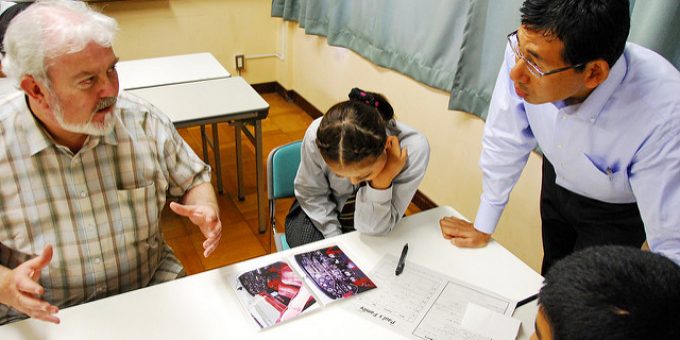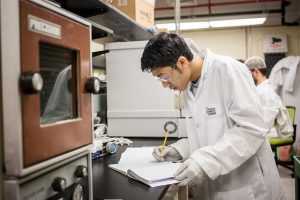
Asian Americans and elite academics are again headline news. Certain Asian Americans are contesting the Harvard University admissions process, arguing that anti-Asian stereotypes paint them as less viable applicants. Many also resent proposed changes by New York City Mayor Bill de Blasio to the admissions process at Stuyvesant, Brooklyn Tech, the Bronx High School of Science, and other top-tier schools in New York City — where Asian Americans make up between 61% and 74% of students — for moving away from a test-driven admissions process. Across both cases, Asian Americans vying for entry call into question what constitutes a meritocratic process, one which they believe has life-changing effects.
These issues have ended up pitting these Asian Americans against other minorities. For instance, the group bringing the lawsuit against Harvard University has links to the anti-affirmative action movement. The change to the New York City school admissions process is meant to increase the number of African Americans and Latinos. So, as Asian Americans push for change in Harvard and against change in New York City, they do so at the expense of other minorities. These issues also have separated Asian Americans from one another. Far from a monolithic group, those Asian Americans most impacted by elite school admission changes tend to be those with educational, financial, and/or community advantages. Asian Americans also disagree with one another on affirmative action — almost two-thirds support it, but in recent years Chinese Americans’ support has declined.
What is motivating these Asian Americans’ intense commitment to elite educational spaces? According to social psychologists, Asian Americans want to project to others that they stand out as high achieving. For instance, Asian Americans believe that it is better to be a lower-performing student in a very highly-ranked school than to be a higher-performing student in a school not highly ranked. But, this raises as many questions as it answers. Most relevantly, why do Asian Americans want to stand out in education per se? What follows is an abbreviated version of my more detailed resolution to this fundamental question.—
There are two main approaches to this topic, both of which have merit. On the one hand, Asian immigrant parents have a cultural affinity for education based on their upbringing within Asia. This cultural argument differs from the traditional (and outdated) version that says Asian immigrants are culturally prone to prioritize education because of an ancient or religious ideology (e.g. Confucianism). Instead, a cultural proclivity stems from immigrants’ structural conditions. Following the Immigration and Nationality Act of 1965, which gave a preference to those immigrants with advanced educations in medical and engineering fields, more Asian immigrants with advanced degrees have immigrated to the United States. Not only are they well-educated relative to the United States population, they are especially well-educated relative to those in their homeland. Their migration depended on their educational achievement, and so they were prone to reproduce the same upbringing for their children.

The other major answer stems from Asian Americans’ experiences in the United States. As minorities, they worry about discrimination and see education as the best means to buffer themselves from it. Discrimination can come in various shapes and sizes. It could be a bias against non-whites. It could be a preference for U.S.-born persons, especially those with American accents. It could be a preference for those with degrees from U.S. universities. It could be anti-Asian stereotypes as one-dimensional. A combination of both approaches leads Asian Americans towards education.
While there is much to appreciate in these explanations, challenges to them remain. For instance, not all Asian Americans who promote education to their children are hyper-selective. Also, that answer does not elucidate how Asian immigrant parents understand their commitment to education, beyond just a reproduction of their upbringings. In addition, racism against Asian Americans matters, but it impacts other minorities as much if not more. So, why are Asian Americans seemingly so distinct in their priority on education if education is understood as the best way to handle racism?
Perhaps we get further by not treating Asian Americans’ commitment to education as a dependent variable that must be explained as different from other groups, and instead by asking how their commitment to education makes sense within parenting trends more generally. Various kinds of families worry about their children’s college admissions and academic futures. Middle class families generally pursue a concerted cultivation parenting strategy of enrolling their children in extracurricular activities in order to boost their level of competitiveness, their teamwork abilities, and other forms of cultural capital that can help in schools and other venues. The goal is often to gain access to a desirable university.Asian Americans are not that different. I interviewed Asian Indian, college-educated (or above) immigrant parents, whose children pursued competitive academics and extracurricular academics (e.g. spelling bees, after-school math classes). They too pursue a concerted cultivation approach to parenting, for they structure their youths’ activities and interests with the goal of making them more competitive for future pursuits. We should not be asking why such Asian Americans care so much about academics, as if they are unlike others, but instead why even though they have the same motivations as other parents, they choose academics as their main pursuit rather than prioritize other forms of concerted cultivation like sports or civics or the arts. What is behind this Asian American style of concerted cultivation?

It is clear that like many other parents, these families consider there to be a competition for achievement. But unlike many middle class, U.S. families, their fear of competition is not an anxiety about how their children’s upbringing would be more scheduled and anxious than their own had been. Instead, immigrant parents experienced a competitive upbringing themselves and projected similar concerns onto their children. As one immigrant father explained,
“Every resource in India is scarce. You have to be cream of the crop to get anything into it…We have this scarcity mentality built in, that we need to be there first to get some resource. Otherwise it’ll be gone. So, we have the competitive thing built into us, so we are pushing our kids to it.”
Many respondents echoed this sentiment. There was competition for practically everything when growing up — for school trips to the museum, for admission to universities, for finding a spouse, for a life out of poverty, etc.
The real motivation for the parents is to have their children win at the competition for mobility. The question then becomes, why is academics their most preferred route for outcompeting others? In part, as other scholars have noted, the parents I spoke to were familiar with intense academics as a gateway to success based on their own upbringing. But, they were not simply reproducing what they experienced. They often times resented their experiences or could appreciate other ways of raising children. Still, they fell back on a hyper commitment to academics because it felt like the best space to be competitive.
Beyond familiarity, academics made sense as their main venue because parents could help navigate their children there. Parents even preferred some academic subjects over others, most notably math and sciences. A common explanation for this is that as objective, test-driven fields, there is less opportunity for racism to bias employers’ or admission officers’ judgements of them. Yet, another compelling reason leads parents to push these fields. Parents want their children to follow in the same fields as they have, for they can provide social and cultural capital to the children, which allows for advantages over others to secure opportunities. As a father said, “It helps some kids to kind of leverage the parent’s career capital. And so, that’s one of the reasons why all these scientists or Indian doctors are sending the kids to math centers.” Following in a parent’s footsteps is the most practical way to rise above others with similar interests but fewer connections. Again, it’s about outcompeting others.The same logic explains why fewer Asian immigrant parents promote athletics or other popular American extracurricular activities for their children. Athletics is not a space where they feel their kids can prevail over others. Informants relied on common racial stereotypes and interpreted sports as a racially black and white space, one where Indians did not belong. Kids tire out too easily, are too short, and had other physical setbacks. So, why bother treating it as a serious commitment? As a parent said, instead it makes sense to “look at other activities which bring you to the top.” Since these parents had outcompeted others through academics, this was the field to prioritize.

If we treat academics as Asian immigrant parents’ sole priority, not only would we not understand what really motivates them, we also would not allow for them to prioritize pathways besides academics. Parents can and do when the context is right, that is when they believe their children have a competitive advantage through another route. If one’s parent is an accomplished musician or athlete or actor, it made sense to follow in those footsteps rather than pursue intense academics for the parents, for the parents have leverage to advantage their children. If one could be a “world class” soccer player, it would be foolish not to try.
—
Those Asian Americans who care about Harvard’s possible discriminatory practices and changes in admission to Stuyvesant and other elite schools do not think they are owed admissions or that their kids necessarily will get in. They protest because intense academics is their playing field, the one that they believe they can be most competitive on. The possibility of facing limits on those opportunities is a fight many have decided is worth having. Policies that give needed support to other groups — such as affirmative action for higher education — do not threaten them, which is why so many Asian Americans support affirmative action. Instead, what threatens them are practices that can disadvantage them.
This is not to say these Asian immigrants do not consider other pathways for their children or focus only on elite schools, but they see too many disadvantages to pursuing them. As more Asian American chefs, comedians, politicians, athletes, and others in non-traditional occupations gain celebrity status, they open the doors for alternate ways of imagining futures. In fact, some parents I spoke with lamented that they were prone to focus on academics rather than other types of excellence, in sharp contrast to the “Tiger Mom” caricature. Anti-Asian stereotypes that limit robust opportunities reinforce parents’ commitment to academics as their safest route.
Recommended Readings:
Pawan Dhingra. 2018. “What Asian Americans Really Care about When They Care about Education.” The Sociological Quarterly 59(2): 301-319.
Annette Lareau. 2011. Unequal Childhoods: Class, Race, and Family Life. Berkeley: University of California Press.
Jennifer Lee and Min Zhou. 2015. The Asian American Achievement Paradox. New York: Russell Sage Foundation.
Alia Wong. 2017. “Why Whites and Asians Have Different Views on Personal Success.” The Atlantic.
Yu Xie and Kimberly Goyette. 2003. “Social Mobility and the Educational Choices of Asian Americans.” Social Science Research 32(3): 467-498.
